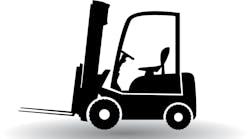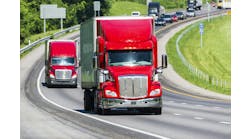The steady rise in demand created by the growth of e-commerce, given an additional boost during the COVID-19 pandemic lockdowns, has resulted in an increase in road and other accidents and injuries among delivery drivers.
“While delivery jobs offer competitive pay, they can also be dangerous,” observes attorney Richard P. Console of the law firm of Console and Associates. He adds that attorneys at his law firm have seen a sharp uptick in the number of delivery drivers who reported sustaining injuries in auto accidents, slip and falls, and dog bite incidents.
“Delivery drivers should know that they have the right to seek legal recourse, including compensation, for these and other accidents that occur while they are working,” he adds.
Delivery drivers sometimes are at fault, and members of the driving public in particular suffer the consequences. Between mid-2015 and late 2019, one survey found that there were 60 accidents and 10 deaths caused by Amazon drivers, resulting in more than 100 related lawsuits.
Often it is the delivery drivers themselves who pay the price for other drivers’ negligence. Amazon drivers, as well as FedEx and UPS drivers, spend most of their day in their delivery vehicles. Given the amount of time spent on the road, it is inevitable that some delivery drivers will get into an accident due to no fault of their own. As is the case with most car accidents, the vast majority of these accidents are entirely preventable, Console points out.
All motorists take on a certain amount of risk whenever they get behind the wheel. However, due to the nature of their job, delivery drivers deal with additional risks. It is not unusual for them to be struck by passing vehicles as they get out to make a delivery. Similarly, delivery drivers also can get rear-ended by other vehicles when they slow down to make a delivery.
Even when delivery drivers are independent contractors they have legal recourse available to them when these accidents happen. “All drivers have a duty to those with whom they share the road, requiring they follow all traffic laws, posted signage and operate their vehicle with care,” Console says. “When an Amazon delivery driver is injured in a car accident, they can pursue a personal injury claim against the at-fault party.”
Being independent contractors instead of employees can complicate matters. But Console says that in some cases this independent contractor classification may actually enable Amazon drivers to pursue an injury claim against Amazon.
While these drivers spend the majority of their time in a vehicle making deliveries, they also have to get out of the vehicle and physically carry packages to customers’ doors. For the majority of deliveries, this is a smooth process, Console admits, but the potential physical hazards can include such obstacles as accumulations of snow and ice; broken, cracked or uneven pavement; and defective or uneven steps.
Who Is Liable?
If a delivery driver trips, falls or is otherwise injured on another person’s property while making a delivery, the property owner may be liable for the driver’s injuries, Console explains. Under general principles of premises liability law, property owners owe a duty of care to those whom they choose to allow onto their land. This includes postal carriers and delivery drivers.
It is generally assumed to be the homeowner’s duty to take reasonable steps to ensure their property is safe, including looking out for defects and dangerous conditions and correct them or provide sufficient warning.
When the drivers are independent contractors, they can pursue a personal injury claim against the homeowner, Console warns, but in many cases it won’t be easy to obtain a judgment. “Slip-and-fall cases can be challenging because the burden to prove that a homeowner was unreasonable in the maintenance of their home rests with the delivery driver.”
As has been the case for postal workers throughout history, dog bites are another source of delivery driver injuries. “Too often, homeowners who keep vicious animals in their homes or on their property fail to take the necessary steps to protect delivery drivers,” Console notes. “Allowing a dog to run loose on a property and not securing an animal when opening the door are two common examples.”
While Amazon allows for its drivers to skip making a delivery if a vicious dog is present, not all delivery drivers are fortunate enough to notice the dog’s presence before it’s too late.
The animal’s owner may be liable for any resulting injuries and can be sued directly by drivers who are independent contractors. Dog bite laws vary substantially by state. In some jurisdictions, homeowners may be held strictly liable for their dog’s behavior, especially when the dog’s owner knows that the animal is dangerous. In addition, the dog’s owner may still be liable for their pet’s actions even if they don’t know the dog is dangerous.
Given the nuances of dog bite law, these claims are best handled by attorneys experienced in animal attack cases, Console recommends.
He also stresses that legal claims for injuries sustained while making deliveries—like other types of injury claims—must follow strict deadlines established by the state where they occur.
“To avoid missing these deadlines, it’s important for any delivery driver who is harmed on the job to quickly take action,” he says. “The delivery driver should report the accident to the authorities, seek medical care immediately, and promptly contact an experienced accident attorney to navigate the complex injury claims process for them.”




